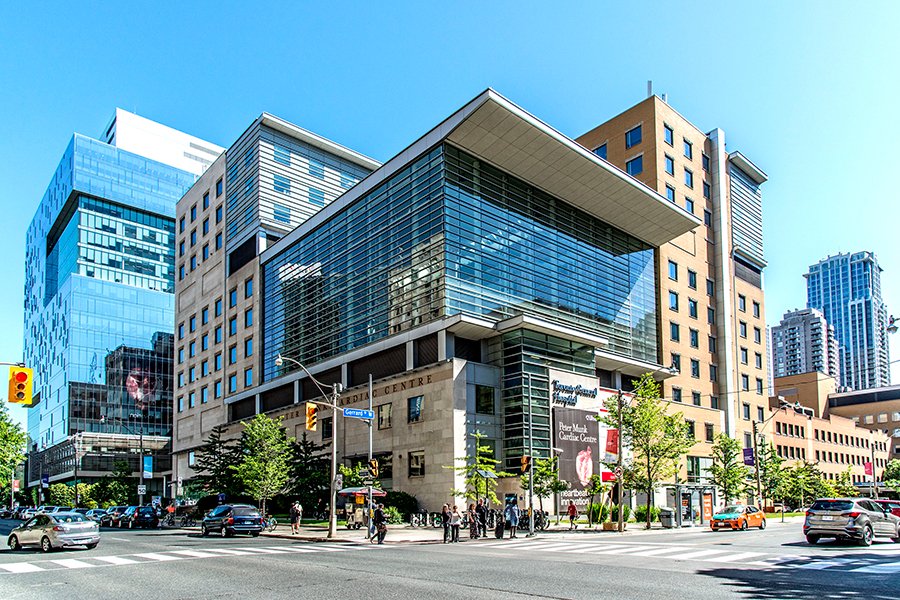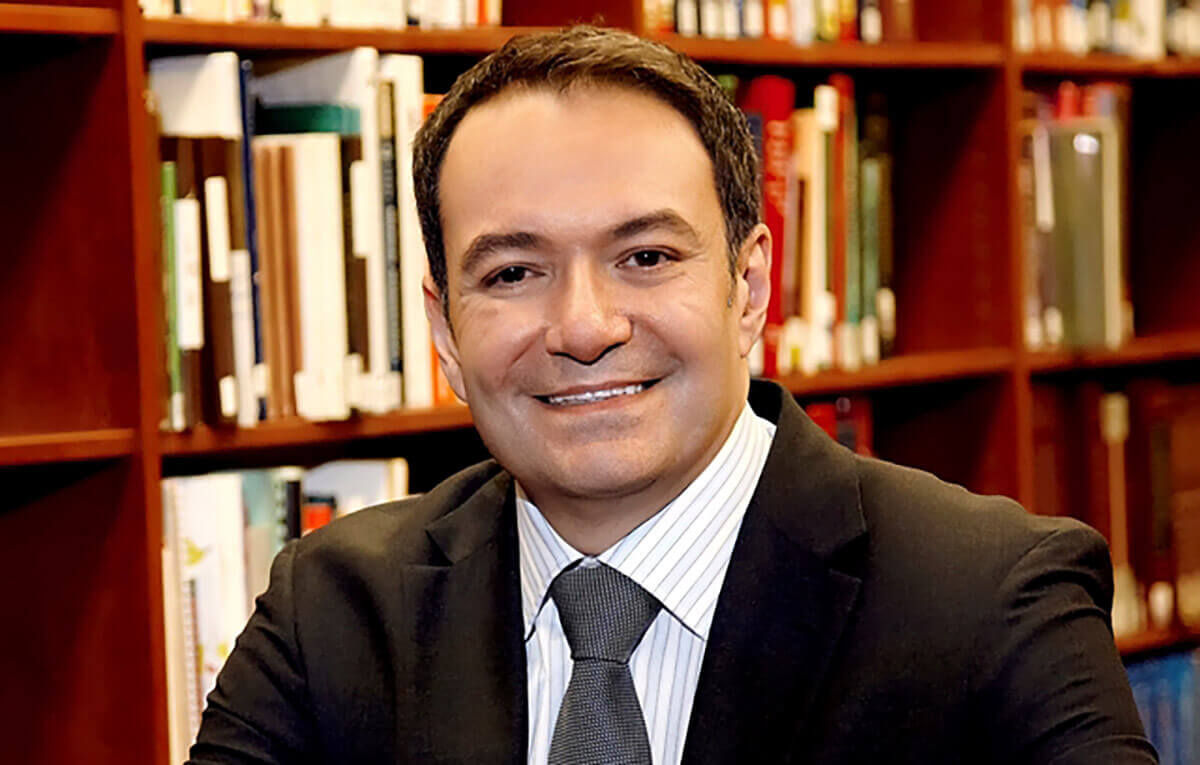UHN is dealing with an increase of 20% of patients and with a shortage of staff
The University Health Network (UHN) manages three of the Greater Toronto Area’s (GTA’s) largest hospitals – Toronto General Hospital, Toronto Western Hospital and Princess Margaret Cancer Centre with more than 1,200 beds and nearly 18,000 staff. UHN’s distinguished reputation is one of the best hospital networks in the world. In 2019-2020, there were over 39,000 acute inpatient stays and close to 121,000 emergency department visits across these three acute care hospitals.
In an interview with Milénio Stadium, the president and CEO of UHN, Kevin Smith remarked, similar to many other Ontario hospitals, UHN is dealing with an increase of patients (around 20%) and with a shortage of staff. To fix the problem, Smith proposes maximizing the number of people in training programs and exploring international recruitment, which may pass through Portugal because of the “very good universities and very good clinical training”.
The average Ontario emergency room patient waited nearly two hours to see a doctor in April of 2022. Health Quality Ontario says wait times hit the 1.9 hour mark for the third time in the past 14 months, climbing steadily each month since January 2022, when average wait times fell to 1.5 hours. Between the three hospitals of UHN, the only one that was on the Health Quality Ontario list was Toronto Western Hospital where the wait times hit 2.1 hour mark.
Milénio Stadium: Are you feeling at the UHN shortages of staff in the emergency rooms as some Ontario hospitals have reported in the last few weeks?
Kevin Smith: We are definitely feeling multiple challenges. Shortage of staff being one, much higher volume of patients as well and of course, more people, both patients and staff with COVID-19. So in addition to having more patients to treat, we also have more staff off sick because of COVID infections. We are probably about 20% higher and we have a greater number of overall vacancies to start with. At any one time, we normally have a vacancy of 200 to 250 nursing positions, there have been times during the last year or 2, we will see those vacancies go up to closer to 500 nursing vacancies. But this is not only in Ontario or Canada, if you look around the world in the United Kingdom right now, in the United States, this is a worldwide phenomenon most definitely.
MS: What are the solutions to remedy this issue? As in, how can we fix this?
KS: Obviously there is no short-term solution, probably there are three current things that we have to think about. One is maximizing the number of people in our training programs. The second is looking at international recruitment, ethically, I mean obviously one doesn’t want to recruit from a very disadvantaged population where the nursing ratios are already low. But places like other Commonwealth or European countries, the United States, for sure we need to put our best foot forward and try to attract more nursing staff that have the skills to operate within the standard of Canada. Last but not least, I think we have to accept that we just will not and cannot produce enough nurses to do what nurses have historically achieved, so we also need to think about creating extenders. That might be people who for example have experience as a Personal Support Worker (PSW) and they’re interested in extending their skills and doing some more training. If they could then be nursing extenders or technicians or technologists working under the supervision of our nursing colleagues.
MS: What if the Province increased the health care workers wages? Would this be helpful?
KS: I know that our nursing colleagues would like to see fair compensation, I think for many, they’re just too tired to take on more work, while of course I know talking to our front line nurses they would like to see increases beyond one percent, no doubt about that. I think we also have to be careful that you know what we’re not regardless of the compensation issues that we’re not taxing people and asking them to work so much that it’s unsafe for them and their quality of life and their families, burning them out further is probably not a solution of success. I think most of our nurses want less work without the interruptions that they’re seeing now and the tools they need to ply their craft towards the science and art of nursing. That ultimately means more people, creating a better supply either of those whom are nurses or those that can be extended as nurses.
MS: Ontario/Canadian residents are suggesting that the emergency rooms are over-crowded because we don’t have enough family doctors. Do you share the same opinion?
KS: We probably have a mal-distribution of family doctors, certainly a number of underserved communities where people don’t have a family physician I think that’s true, I certainly think that there are people who want a family doctor, don’t have it in parts of the Province, but I don’t think for the most part the emergency crisis or challenge would alone be met by work family doctors, you know being able to see your family doctor more quickly and in person we are told repeatedly by our patients and emergence is important and that they don’t have that option available to them as much as they’d like at the moment. If that’s so, then obviously making sure the capacity and access to family medicine is better, is something we definitely should work at. But I also would say if you’re sick enough to require admission then you know seeing your family doctor isn’t going to really be the solution. If you’re in an emergency room and you need to be admitted to hospital, then we really do have a supply issue within the acute care sector and that trickles into general internal medical beds, surgical beds, really across the whole system. The last piece of this one, is something called alternate level of care. Patients who are no longer acutely ill, and don’t need to be in an acute care hospital like UHN, their doctor has said they could go to a different place or they’re not independent enough to go home, they need to go to long term care or rehab or complex care and so the whole flow of the system, is a bit backed up, so the more we have people who are ready to discharge but really nowhere to go, that means we can’t transfer out an admitted patient from the emergency medical unit. So it really is, the emergency room in my view is a flashing light, it’s a symptom, it’s not the root cause affecting the overall flow of the system and capacity for all active patients.
MS: What is the current surgical backlog of UHN? What area is challenging you the most?
KS: We have around 4000 backlogged cases. Probably the greatest challenge would be in areas that are not life threatening but quality of life interference, so those areas include but not limited to orthopedics, ophthalmology, cataracts and things like that, so obviously we’re trying to prioritize things like cancer, cardiac or illnesses that if we don’t treat you soon, you might have a bad outcome in terms of life expectancy, With that having been said, I recognize that when your quality of life is deeply affected by not being able to get your hip done and you’re in constant pain, it’s a little bit of a false dichotomy to suggest that should that those patients aren’t equally as deserving. But at the moment, we’ve had to prioritize risk of shortening one’s life or impacting one ‘s life in the long term. So it really is, historically what were referred to as scheduled surgeries such as orthopedics or eyes or is some general surgery but would not have been would not be related to an illness like cancer.
MS: From all the hospitals under the UHN umbrella, which site has the worst backlog currently?
KS: We don’t really look it up by site per say, we look at it by program area. The most challenging program, I would say, would be probably orthopedics or arthritis and orthopedics and ophthalmology.
MS: Have you had an opportunity to meet with the new Ontario Minister of Health, to address some of UHN’s concerns?
KS: Yes, the meeting was excellent. I’ve had good fortune to meet with Minister Jones, Deputy Premier Jones. She is very well briefed on the challenges, I would say her role as Solicitor General prior to becoming Minister of Health and Deputy Premier, she was deeply involved in the healthcare system as it related to Covid-19 and really saw all the problems and all the strengths that exist in our system, so I think she’s really taking care of this portfolio, as a very well informed Minister and Deputy Premier. I think she is very action oriented with her officials in her ministry and trying to prioritize those areas that are most in need. I know she’s very seized with the issues around emergency rooms, the hiring and recruitment of additional nurses, we also talked about the opportunities for people who are health providers operating within their full scope of practice but making sure that people you know like pharmacists as an example, who can and should be given more opportunity to do more vaccinations or other examples that we can somehow make sure for our very scarce nurses that they’re doing what only they can do. Then the last piece we talked a lot about was her concern about the quality of work life for people in the health professions and those who support them and that you’re real champions for people who provide care and those who support people who provide care in
MS: Does UHN have a timeline to put in place some of these proposed changes? Would you say that the next month or two, patients would be seeing something different?
KS: It Is going to happen as quickly as it can possibly be made to happen so much of this, is getting a large part out of the hands of a government and into the hands of other organizations like our colleges for example so the nursing college you know how quickly can we take foreign trained graduates and make sure that they’re safe to practicing. Similarly, how can we look at maximizing scope of practice? How quickly can we mount educational programs for PSW’s to become extenders for nurses. So at the moment, I would say that is all in play and people are running as hard as they can. The challenge is often times, the people we need to do that work are the same people who we need to do our nursing and clinical care and we have to be mindful that you know we can’t expect them to work 9 to 5 and then 5 to 9 as well and you know it’s really quality of work life is a challenge right now.
MS: You mention specifically short term solutions, what about the longer-term ones? Which solutions would you like to see in place throughout Ontario hospitals?
KS: Great question. I think long term, we definitely have to look as I talked about what’s the supply. This is a supply and demand issue, and we know with an aging population and population growth at about 2% in Ontario, we are not producing enough nurses, so we need to look at how we can maximize the number of nursing and medical positions. In the last budget, we saw the creation of a new medical school, expansion of the existing medical schools, but as you know, it’s a 5 to 10 year cycle to fully train primary care specialty physicians. So it won’t be short term fixes but we do need to make sure that universities and colleges have maximum number and enrollment and maximum capacity for training. I think that we have to work between the Federal and Provincial government on immigration, fast tracking nurses from countries where their education would be well recognized. Thirdly, we have to work with the health professional colleges of nurses, physicians and other health providers so that when we get those folks here, we can get them assessed and into practice as quickly as possible. Fourthly, as I say about that whole maximizing scope of practice looking at extenders is something that the United States has done exceptionally well recognizing that you know we don’t now have or ever, unlikely to ever happen to have an over abundance of doctors or nurses again, but we really have to look at who can support their work by extending them under their supervision.
MS: Is there any consideration for Portuguese health care workers under this scope of practice?
KS: Yes, we would certainly welcome them, I don’t know a great deal about the Portuguese healthcare system, I know that it’s a system that does guarantee access for all citizens. Unlike Canada, does have a private component of health care which we don’t but you know very good universities, very good clinical training, we have a large Portuguese population here so I would very much encourage people from Portugal and the Azores, where we have many Canadians whose history is from that part of the world, this is a great place to look if you’re thinking about immigration and the help and if you’re a health professional, all the moreso.
MS: What is your message to the health care professionals that are dealing with the overburdened healthcare system?
KS: My message is one of deep gratitude, so thank you for what you’re doing, thank you for continuing to warrior through and put patient care first. The second message, I think we need to be careful, we know there is a limit on how much people can give. And you know make sure we know when you’re approaching that limit and are there things that we could do to help your quality of work life and resiliency and know that we are working as hard and as fast as we can to try to augment your supports, be with the extenders or with additional recruitment or doctors and nurses and others who do the work you do.
MS: Is there anything else that you would like to add, as closing comments?
KS: You know the only thing I probably mention is the importance and this discussion of also recognizing the demands and needs of education and research. That you know while we are all very committed to ensure how all our clinical work gets done and we’re doing our very best to make it as good as it can be in light of the circumstances. We also have to really preserve the training for the next up and coming healthcare providers, make that an attractive future that you see not only in this moment the challenges that we’re facing but these are great careers these are all rewarding professions and last but not least when you’re so focused on caring for patients, when there is such great demand, we really also have to protect our research mission, which is fragile at the best of times, and making sure that we preserve and protect those researchers in Canada, it’s going to be a real challenge but one we cannot forget about those other people who are going to invent tomorrow’s care today and in fact the solutions that will dramatically change how we care for patients.
Joana Leal/MS










Redes Sociais - Comentários